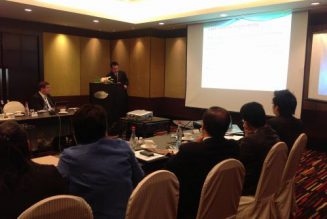“It is relatively easy to live here in Thailand and it is a dream for many entrepreneurs.” says, H.E. Joan Boer, Ambassador of the Kingdom of the Netherlands to Thailand in TEBA exclusive interview.

H.E. Joan Boer, Ambassador of the Kingdom of the Netherlands to Thailand and Uli Kaiser, President of TEBA
TEBA is always working to provide interested stakeholders with improved information and insights on the key issues relating to the Thai-European business environment. As a part of this, we are kicking off our Thai-European Discussions series where we will be conducting interviews with some of the key people in the sector to gain insights on the most important business trends. TEBA will be speaking to senior executives of Thai and European businesses, government officials and, as you will see from this inaugural interview, ambassadors.
We are delighted that our first TEBA interview is with H.E. Joan Boer, Ambassador of the Kingdom of the Netherlands to Thailand. Mr. Boer kindly invited us to the beautiful Netherlands Embassy on Tonson Road in the heart of Bangkok for a discussion about his role and the current trends in Thai-Dutch business relations. The large plot of green land where the Netherlands Embassy is situated stands like a calm oasis in contrast to the surrounding concrete jungle that is central Bangkok. The grounds feature a small lake, an abundance of trees and the modern embassy building standing next to the traditional turn-of-the-century Thai house – infront of which stand the herd of colourful cows representing different countries.
Supporting Dutch Business in Thailand
“Well, the role of the embassy in supporting Dutch business can be divided into two categories. For the larger Dutch companies, for example, normally we only get involved when there is a big issue, where a diplomatic approach is often seen as the best way forward.
“For smaller companies, we handle everything from supporting their initial interest in the country, and help them with finding producers and suppliers, conducting market research, and having discussions with the BOI. We also provide them with information on local taxes and business laws,” he tells us.
Mr. Boer explains that with the Netherland’s-Thai Chamber of Commerce is located at the Embassy; this allows them to work together closely, forming what he calls a “One-stop Holland House.”

Key Trends in Southeast Asia
On doing business in the region, Mr. Boer says, “It is relatively easy to live here in Thailand and it is a dream for many entrepreneurs. If you are in manufacturing, it is one of the best places to be.” He tells us that he sees a lot of potential in Thailand in terms of high value-added food products. “Rice is not the most interesting agricultural food product from Thailand anymore,” he says while talking about mangos. Though, he cautions that Thai industries, for example the shrimp and tourism industries, need to be mindful of the importance of sustainability.
Mr. Boer advises Thai companies to develop a more regional view. “Thailand risks getting stuck in the middle-income trap – it needs to focus on innovation and education in order to move forward.”
While discussing improving innovation, Mr. Boer gives us an example of a business strategy from Dutch technology university in Eindhoven, home town of the Philips company. We are told that in this compound there is just one restaurant that everyone eats at. This way, people from different departments and levels of the organisation naturally interact with each other and that this then leads to exchanges of ideas and, therefore, to greater levels of innovation over and combining different disciplines. Simple and very effective, looking at the number of patented innovations coming from that compound.
We move on to talking about Myanmar, where Mr. Boer praises the English language skills of the Burmese people, saying it is an important factor for doing business. With the large oil pipeline project linking the country to China and the growth of the Dawei seaport, he feels that this may in the long term diminish the importance of Singapore as a trading zone. In other sectors, he explains that the Shan Plateau is great in terms of the potential for development of agriculture and that its proximity to China will be of benefit. Mr. Boer highlights the fact that Japan and China have been moving heavily into Myanmar and advises Dutch companies to take a long-term view of the country.
Disscussing the growth of Myanmar, Laos and Vietnam, Mr. Boer suggests that the center of business in mainland Southeast Asia will likely shift northwards and that Chiang Mai in northern Thailand has a lot of potential as a future center of trade and commerce in the region. He sees business being focused on more of an East-West axis rather than a North-South one.
Welcoming Business to the Netherlands
In terms of welcoming business and people to the Netherlands, Mr. Boer poses one question: “Do we want more people and businesses or less?” He is confident that more people going to the Netherlands from Thailand and the region is of clear benefit. There are around 30,000 Thai people living in the Netherlands, many in the second generation of immigrants. Mr. Boer suggests “Rolling out the orange carpet” to legitimate visitors going to the Netherlands and moving as soon as possible to multiple-entry visas. We are told that only 3% of visa applications to the Netherlands from Thailand are refused. He feels that the 97% of legitimate visitors should not be hindered because of the 3% minority. If a potential business visitor has been invited to visit the Netherlands, he wants them to be able to be there with as little hassle as possible.
Mr. Boer explains that there are numerous investment opportunities in the Netherlands. We are told that Thailand’s PTT and Indorama have invested in the chemicals and petrochemicals industry in the Rotterdam area. Double A paper is another example of a Thai investor in the Netherlands and food products have a promising future.
Mr. Boer praises the Netherlands’ good tax structure and language proficiency. “In fact, I have a Chinese daughter-in-law who complains that she wishes to develop her ability to speak Dutch; however, because almost everyone speaks to her in perfect English, she has no opportunity to practice,” he says.
“For Thai businesses wishing to invest in the Netherlands, there are dedicated members of staff from the Netherlands’ investment agency based at the embassy in Bangkok who is 100% focused on supporting Thai companies. They arrange company visits and assist with information on visas and tax issues,” explains Mr. Boer.
With the Dutch having been around for 400+ years doing business with the Thais from the beginning of when Thailand started trading with the world, no doubt these close trade and business ties will continue well into the future.
![[TEBA Past Webinar] Workshop on Responsible Business Conduct and Socially Responsible Labour Practices](https://www.thaieuro.biz/wp-content/uploads/2021/10/coverpage_v04102021-327x219.jpg)
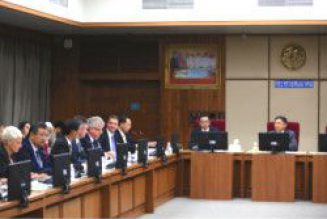
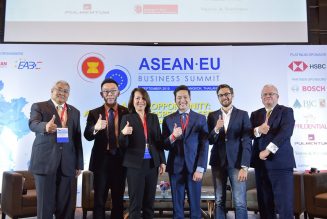
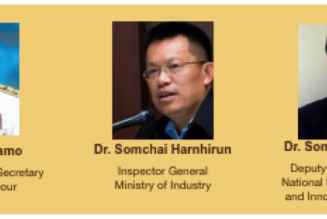
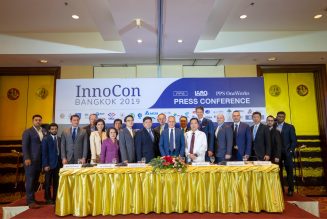
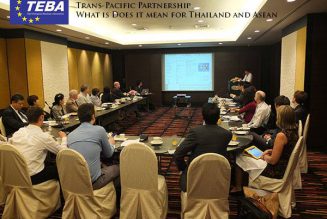
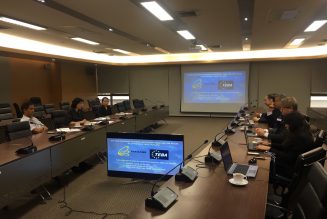
![[TEBA Past Webinar] Socially Responsible Business Practices in the Automotive Sector in Asia](https://www.thaieuro.biz/wp-content/uploads/2021/07/Website_01-327x219.jpg)
